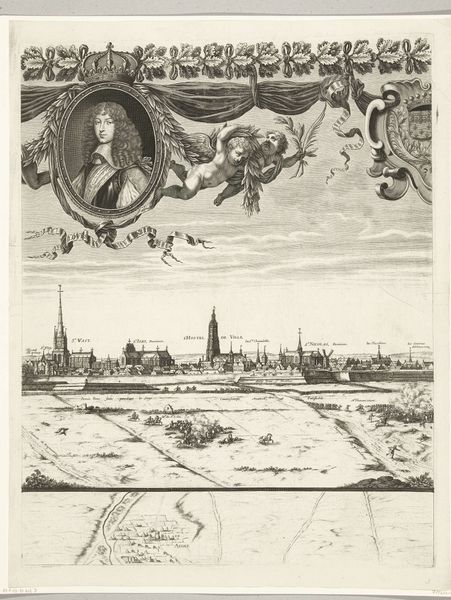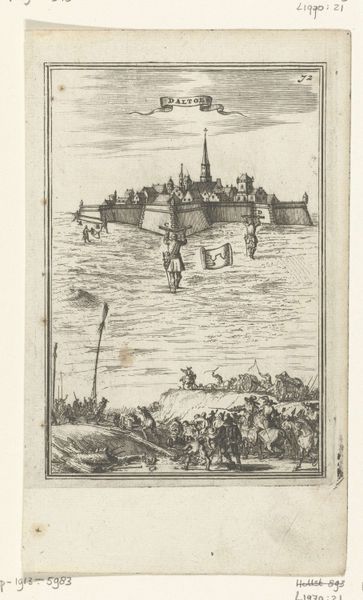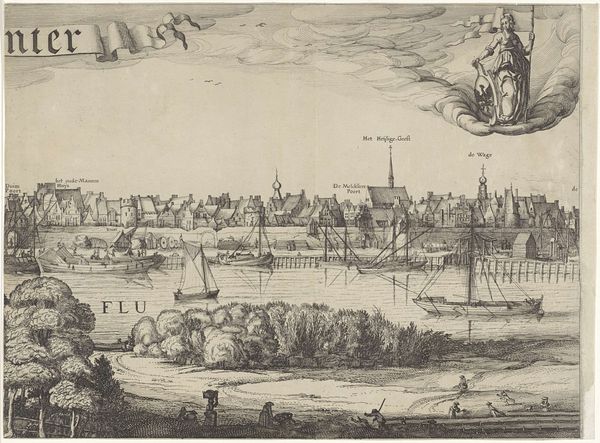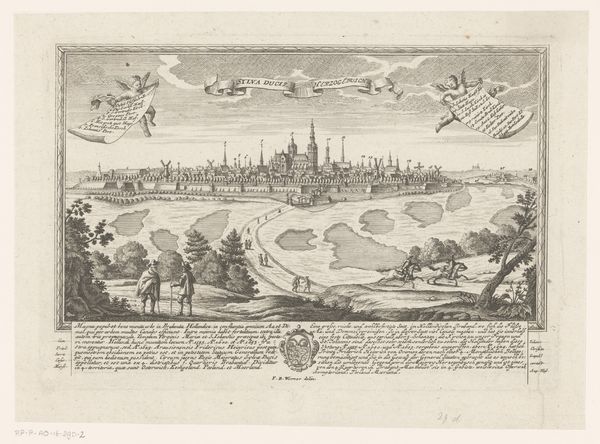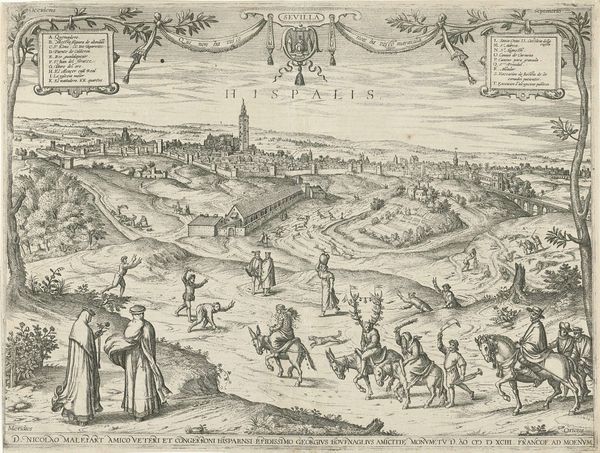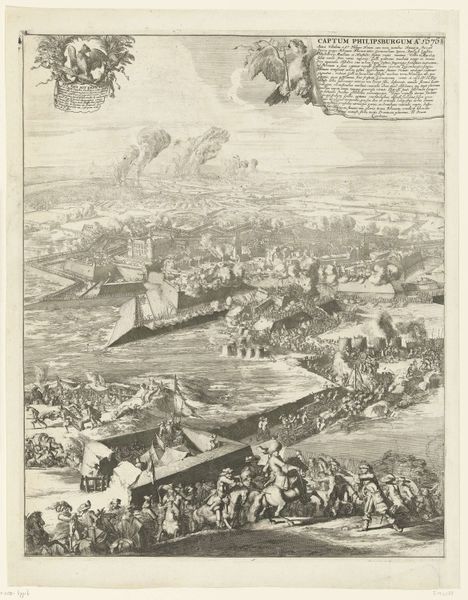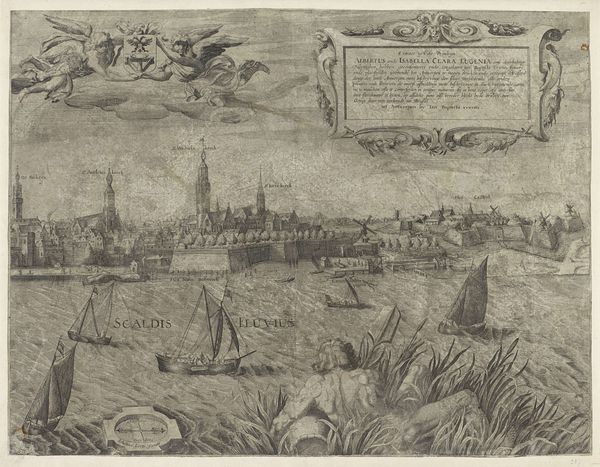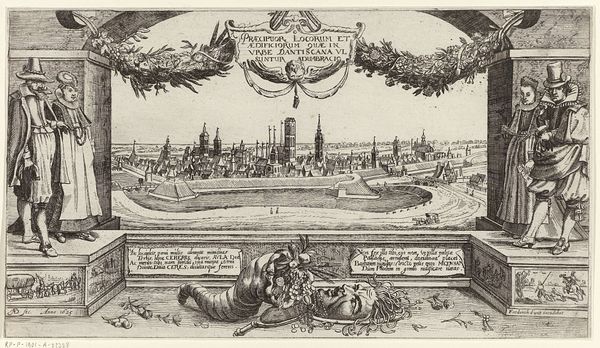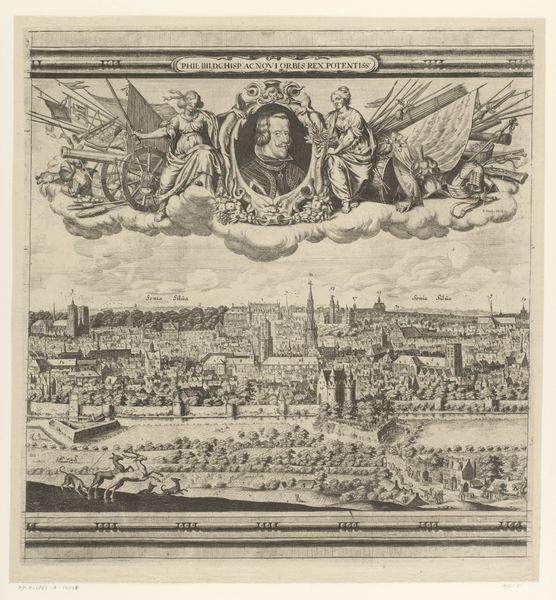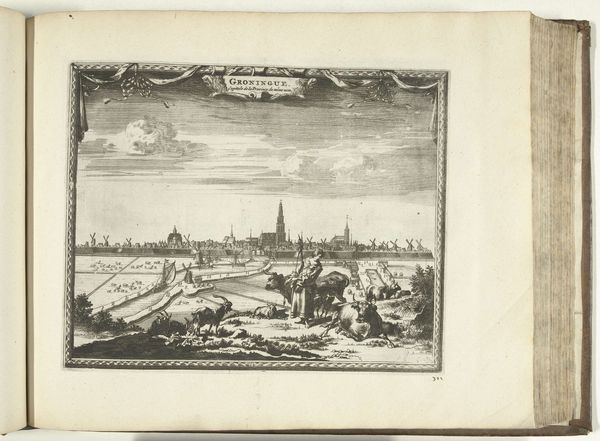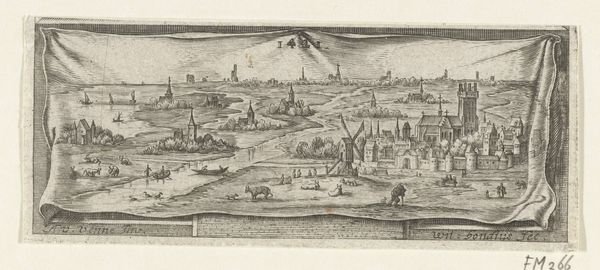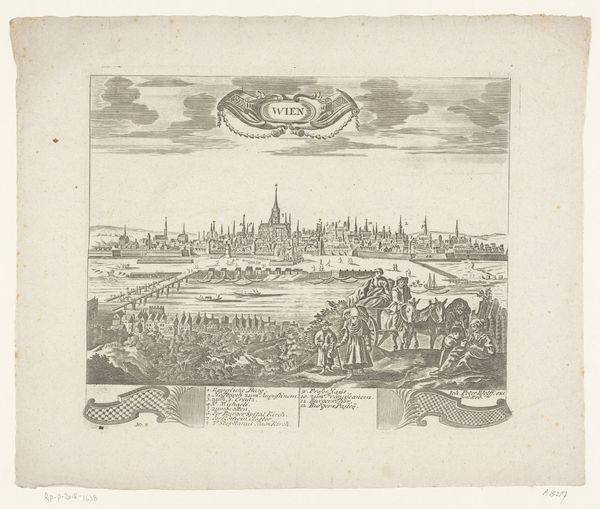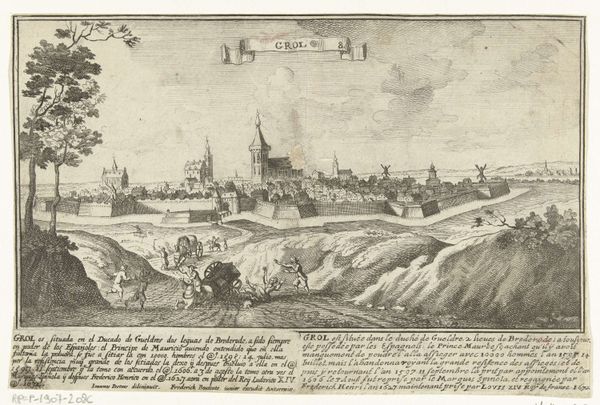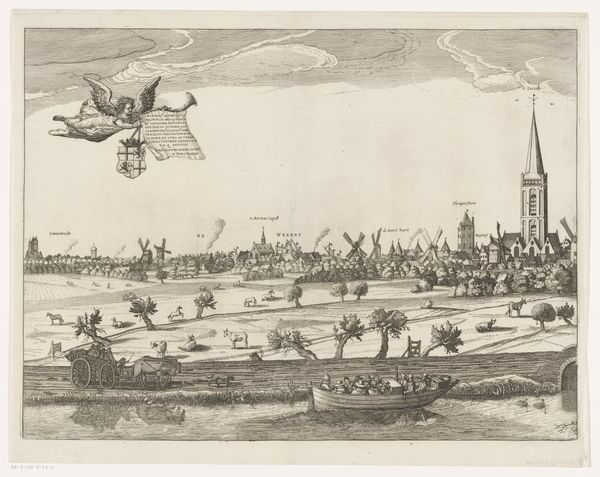
Ontzet van Arras, belegerd door de Spanjaarden (bovenste rij, plaat 2), 1654 1655
0:00
0:00
nicolascochin
Rijksmuseum
print, engraving
#
baroque
# print
#
pen sketch
#
line
#
cityscape
#
islamic-art
#
history-painting
#
engraving
#
realism
Dimensions: height 585 mm, width 455 mm
Copyright: Rijks Museum: Open Domain
Nicolas Cochin engraved this image in 1654, titled "Relief of Arras, besieged by the Spanish." High above the city we see a crowned coat of arms, symbols of authority and dynastic power, floating ethereally between garlands and a cherubic figure. This emblem of authority, this heraldic shield, is no mere static symbol. It echoes through history, doesn’t it? I'm reminded of the shields of antiquity, the Roman eagles, the medieval banners—each a condensation point for collective identity and power. Here, it signifies the might of the French monarchy, a reassurance to the besieged citizens. But consider the cherub, too. Traditionally, these figures symbolize divine intervention, hope, and renewal. How often do we see them heralding victory or salvation across epochs? From classical winged figures to Renaissance putti, they embody humanity's eternal desire for deliverance. Perhaps such deep-seated cultural memory explains the enduring emotional resonance of these motifs, engaging us at a subconscious level with themes of power, hope, and salvation. Their appearance, in essence, is a cyclical return—a persistent echo in the theater of history.
Comments
No comments
Be the first to comment and join the conversation on the ultimate creative platform.
